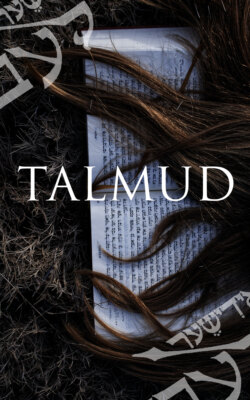Читать книгу Talmud - Various Authors , Government of Brandenburg - Страница 72
На сайте Литреса книга снята с продажи.
CHAPTER V.
ОглавлениеMISHNA I. How can the boundaries of a town be extended? The difference between the hearts of the previous sages and those of the later. Why the Judeans retained what they had learned, and the Galileans, not. Whence is it known that the Lord forgave Saul for his sin? When Joshua b. Hananiah was disconcerted by a woman, a girl, and a boy. What Brurih, the wife of R. Meir, told to R. Jose, the Galilean, and also to a young scholar. The explanation of Netzach, Selah, and Voëd mentioned in the Bible. If the tables had not been broken the first time the law would not have been forgotten by Israel. How to retain one's knowledge. How the method of teaching the law was in the times of Moses. R. Preida would teach a disciple a thing four hundred times, and once twice four hundred times: his reward for this from heaven. If a town is in the form of an arch. If one comes to make a town square. The equinoxes. Note about the seven planets of ancient astronomy, 119-131
MISHNAS II., III., IV., V. An allowance of seventy and two-thirds ells of space must be made to the town. The difference of opinions whether to each town, or between. What must the distance between the outer villages be? One must not measure the legal distance except with a line exactly fifty ells long. The three kinds of cord. What is meant by cutting straight through the mountain. The measurement must be undertaken only by an expert. If a town belonging to an individual becomes public property. If a town that is public property becomes the property of an individual. The inhabitants of Kakunai came before R. Joseph and asked him to give them a man to effect an Erub for them in their city, 131-140
MISHNA VI., VII. A man who is at the east of his domicile, telling his son to place his Erub towards the west, or vice versa. What is meant by "toward the east"? (and illustrations). If a town stands on the steep banks of a lake. The discussions about the right of the inhabitants of Hamtan and Gadar to carry or go. The inhabitants of a large town may traverse the whole of a small town (but not vice versa). Mar Jehudah observed that the inhabitants of Mabrakhta placed their Erub in the synagogue of the city of Agubar, 140-144
